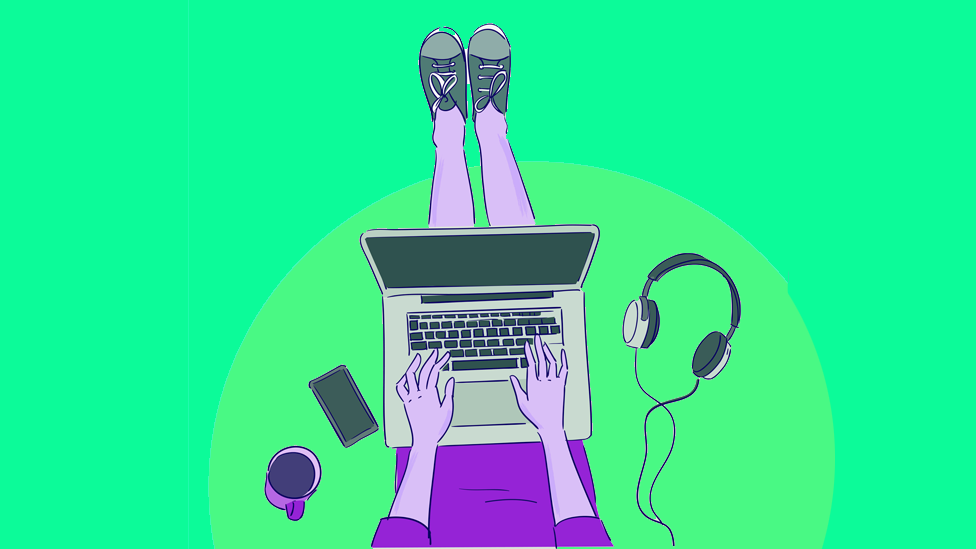Coronavirus: The PTSD risk on the Covid-19 front line
- Published
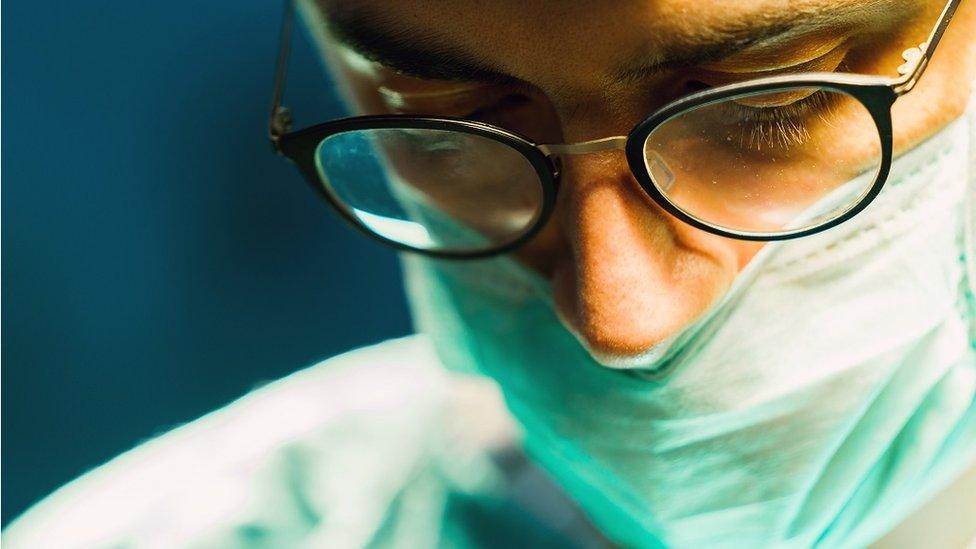
Student nurse Catherine McLaughlin is playing a nail-biting waiting game.
Just months from graduating from Queen's University in Belfast as a nurse, she has been swooped up by the whirlwind of a global pandemic.
Now, she's waiting to hear where she might be posted as the coronavirus wave hits Northern Ireland.
A graduation ceremony - complete with rolled-up certificate, a gown and the traditional strawberries and cream on the lawn - is a million miles away from now.
University is out early and up to 600 student nurses like her across Northern Ireland have volunteered to play their part for patients with Covid-19.
"I'm scared and worried about what I'm going to see and if I'm going to be good enough," she confessed.
'I don't want to let them down'
Even choosing to volunteer was a dilemma - as a mature student with six children, aged three to 18, signing up for the front line did not come worry-free.
"My children are very proud of me," she said.
"They are telling their friends: 'My mum is a nurse and she's going to go out there and help all these people.'
"But they have worries and fears. What if you get sick? What if you bring something home? What if you are really sad because people might die?"
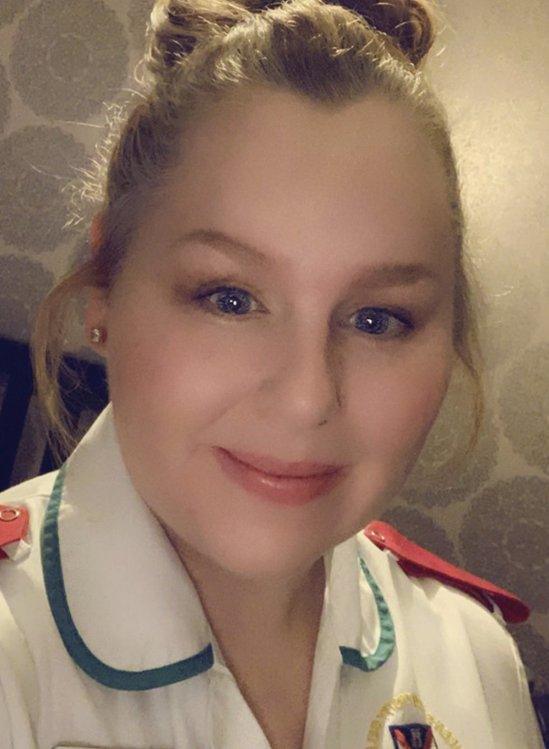
Catherine McLaughlin is waiting to hear where she will be posted

She has her own fears - the lack of personal protective equipment (PPE); the ethical dilemmas facing staff with not enough resources to go around; the difficulty of hearing of other nurses and medical staff who have died.
She's edgy about the unknown but wants to go in and play her part. She is also aware she is new to the job and wants to be up to the mark for the rest of the healthcare team.
"I don't want to let them down," she said. "I don't want to hear them say: 'Come on, pick up the pace.'"
But, she knows about burn-out and compassion fatigue - for her final year dissertation, she chose to study the emotional responses of nurses working in palliative care.
'Don't try to be superheroes'
She was thrilled by the wave of gratitude shown by the applause on doorsteps for the NHS workers, but is also concerned that the "superhero tag could be counterproductive".
"We may be perceived as superhuman but we're not," she said.
"It's tough out there. We're human."
That's a message echoed by Dr Michael Duffy, who knows all about supporting healthcare workers through stressful times.
He has been at the forefront of work in trauma and Post Traumatic Stress Disorder (PTSD) for 22 years, as a lecturer at Queen's and as a senior psychotherapist.
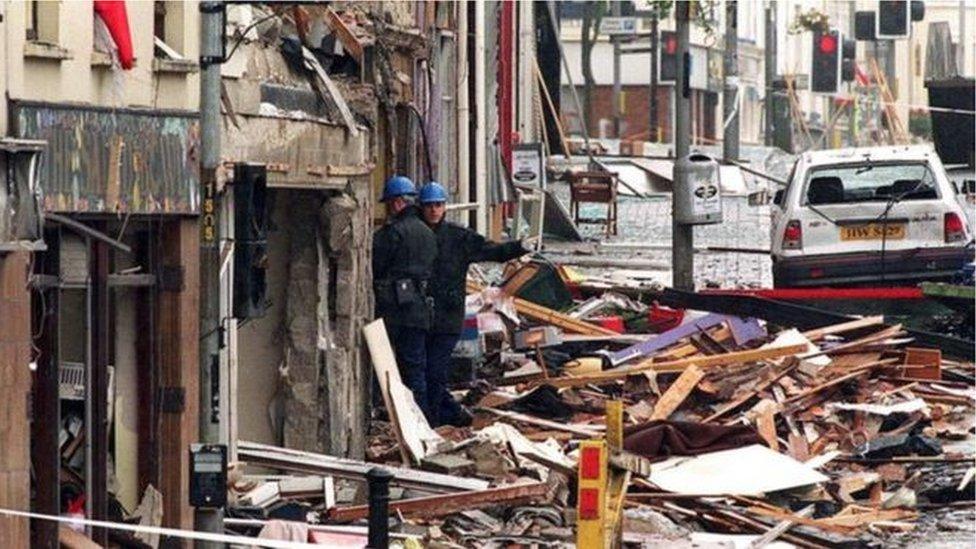
Dr Michael Duffy led of the work of the trauma team following the Omagh bomb in 1998
"Do not try to be superheroes at the expense of your health in the long term," he advises healthcare staff.
"We need you today and also in the months ahead."
He learned about PTSD first-hand as a mental health social worker in north Belfast during the Troubles.
After the Omagh bomb in 1998, he led the work of the trauma team and has since given workshops across the world to therapists working with victims of large-scale traumas - from the 9/11 Twin Towers attacks to the London bombings in 2005 and the Manchester concert bomb in 2017.
'Staff need to feel safe'
For the doctors, nurses and all the healthcare workers on the front line of this pandemic, the psychological effects will, in some ways, resemble the aftermath of a single large-scale event like the Omagh bomb, said Dr Duffy.
"But this also has features of a more prolonged traumatic period and, in this respect, will have features of the 30-year period of the Troubles."
There is support there for healthcare staff, thanks to new trauma networks established in every health trust, he said, but workers still need to feel safe.
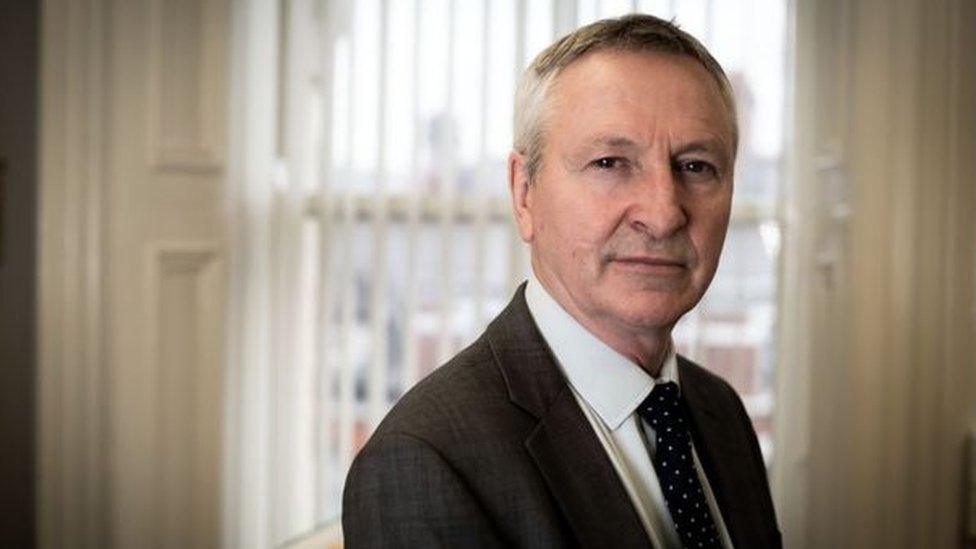
It might be difficult for some workers to slow down again and adapt after dealing with the coronavirus crisis, says Dr Duffy
"It is vitally important to provide high quality protective equipment for frontline staff," he said.
"A sense of safety and security will help staff cope better psychologically with the demands of the job."
They will face intense emotional experiences in very challenging circumstances, he said, but in the long term it might be difficult for some workers to slow down again and adapt; others may feel exhausted and emotionally drained.
There will be an end to this, he said, and most staff will come through it without enduring mental health problems but all should be told that it is legitimate to take psychological help if needed.
'Self care is crucial'
People working on the front line may experience anger, fear, guilt, anxiety, helplessness and numbness in the course of this pandemic, added Dr Ciaran Mulholland, a psychiatrist and the regional director of Northern Ireland's Regional Trauma Network.
"These are all normal responses to an abnormal set of events and, for most, these will pass in time," he said.
"If you feel guilty about difficult decisions your team have to make, try to focus on what is within your control.
"Pay attention to the things that are going well and remind yourself of the successes as well as those patients who did not recover."
He said preparing people for the psychological impact makes a difference. Many will face moral dilemmas on how they will cope with inadequate resources and fears about their own lack of knowledge and experience.
"Balancing our duty of care towards our patients, along with anxieties about protecting our families and loved ones, can cause a sense of helplessness," he said.
Self care is important, he added - eating well, exercise and good sleep as well as staying connected with friends and family.
"If we are not well ourselves, how can we care for others?"
There would be an end point, he said, and it was crucial to stay well.
His message to those like student nurse Catherine McLaughlin, venturing out into a strange and frightening landscape, was clear.
"We need you to stay well for your families and friends and in order to continue caring for patients after this crisis abates."
- Published16 March 2020
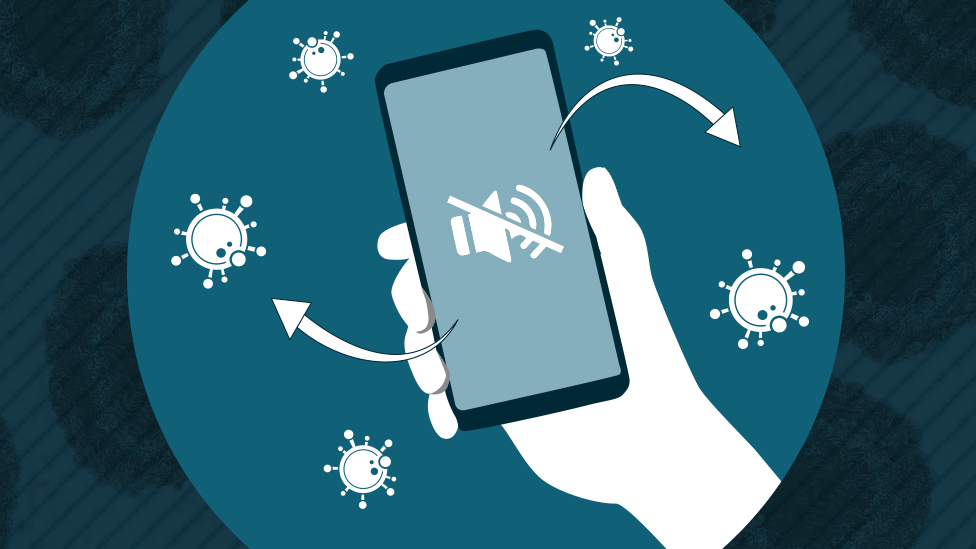
- Published1 April 2020
